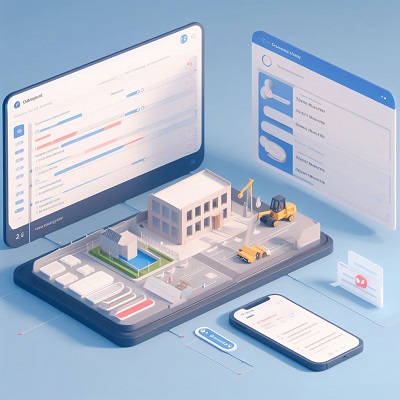 Wednesday, May 8, 2024
Wednesday, May 8, 2024  Wednesday, May 8, 2024
Wednesday, May 8, 2024 
Every innovation in the world of construction arises from a pressing need, and the introduction of construction project management software emphasizes this reality. The software’s origin was a response to the construction industry’s struggle with balancing efficiency and chaos, caused by complex projects and multifaceted operations. For years, the sector faced challenges with manual coordination, excessive paperwork, and outdated tools, resulting in delays, inflated budgets, and compromised quality.
During the 1980s, the construction industry witnessed a gradual shift towards embracing digital tools as a means to revolutionize traditional paper-based methods. These early digital tools, although rudimentary in nature, laid the foundation for a more streamlined and efficient approach to construction project management.
With a focus on basic accounting and project tracking, these tools allowed construction professionals to transition from cumbersome manual processes to a more automated and organized digital workspace. The introduction of these digital tools represented a cautious yet significant step towards integrating technology into the construction industry.
By adopting these digital tools, construction professionals were able to improve their efficiency and accuracy in tracking project timelines and budgets. The ability to input and retrieve data electronically greatly reduced the risk of human error and allowed for more accurate financial forecasting and resource allocation.
Furthermore, the use of digital tools in construction project management paved the way for improved collaboration and communication among team members. Instead of relying on physical documents and face-to-face meetings, construction professionals could now share information and updates in real-time, regardless of their location.
The introduction of these digital tools in the 1980s marked the beginning of a transformative journey for the construction industry. It set the stage for future advancements in technology and laid the groundwork for the integration of more sophisticated digital solutions in construction project management.
Keep reading this blog on Ontraccr.com